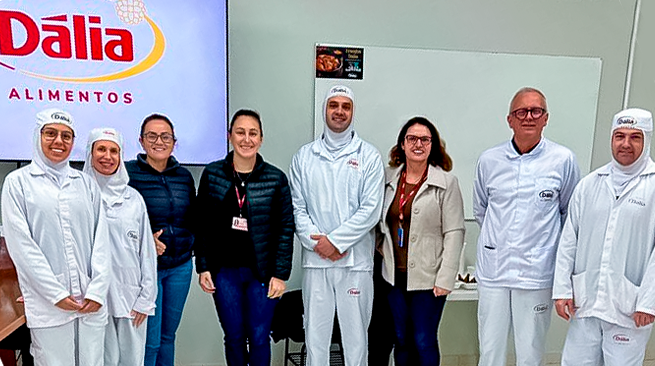Environment
In Seara, 55% of integrated producer farms already use solar energy

At Seara, 2023 ended with an impressive milestone: 55% of the brand’s integrated producer farms are already using solar energy in their facilities. The result is even more representative when considering only poultry farms, where use reached 60% at the end of 2023. In certain regions, the numbers are very impressive: among the integrated producers in Trindade do Sul (RS), the adoption of photovoltaic panels exceeded 92% of farms, while among the supplying units in the region of Salvador do Sul (RS), use reached 96%.
The installation of photovoltaic panels on farms has been encouraged by Seara, either through bonuses for those producers who migrate to the use of solar energy, or by intermediating financing for the purchase and installation of equipment, with reduced interest rates.
“The cost of electricity has an impactful impact on the production process of integration, and it is important to seek alternatives to reduce it. Photovoltaic technology is an option that adds competitiveness to the activity, reducing costs and increasing producers’ margins. Studies show that electricity costs are the third largest cost on a broiler farm; the transition to the photovoltaic model can represent savings of up to 90% on the electricity bill,” says José Antônio Ribas, executive director of Agriculture at Seara.
“Currently, with the increase in suppliers, greater availability and dominance of photovoltaic technology in the market, combined with an annual increase in the cost of electricity at concessionaires, often driven by water shortages, the “Green” credit lines that have more attractive interest rates represent an investment that is proving to be increasingly competitive,” highlights Vamiré Luiz Sens Júnior, executive manager of Agriculture at Seara. “The initiative tends to pay for itself in up to three years, allowing what was previously only included in the cost line to be incorporated as margin by the producer. So, it is a solution that, in addition to being more sustainable, is also quite economically interesting for the integrated business”, adds Vamiré.
Seara Checklist for integrated bonuses
Seara has a Checklist that guides the bonus policy for integrated poultry and pork partners. In addition to criteria for structural and procedural adequacy, the checklist also includes Sustainability items, which account for up to 35% of the total bonus value. Among the ESG criteria, in addition to the installation of renewable energy sources on farms, such as photovoltaic panels, are also the implementation of a program for identification, separation and correct disposal of solid waste; and the adoption of full animal welfare rules. Farms that adhere to the three items are now entitled to the bonus.
The implementation of sustainability criteria in the Checklist was an important move for JBS. Encouraging the use of renewable energy sources by integrated producers contributes to the company’s Net Zero objective and will be important to enable reductions in scope 3 emissions, which are in the Company’s value chain.
READ TOO

Animal welfare
08/09/2025
Dália Receives Animal Welfare Certification
Cooperative earns recognition for its Poultry Industrial Complex, reinforcing its commitment to ethical and safe food production Reaffirming its commitment to sustainability […]
Read more
Animal welfare
16/04/2025
Aurora Coop renews international certifications and reinforces commitment to animal welfare
Independent audits confirm excellence in swine and poultry operations, impacting over 350 million animals annually Aurora Coop, one of Brazil’s largest agro-industrial […]
Read more
Environment
23/03/2025
Frivatti stands out for sustainable water management and environmental preservation
Company implements advanced treatment and reuse systems, exceeding environmental regulatory standards Frivatti has established itself as a reference in sustainable water management […]
Read more
